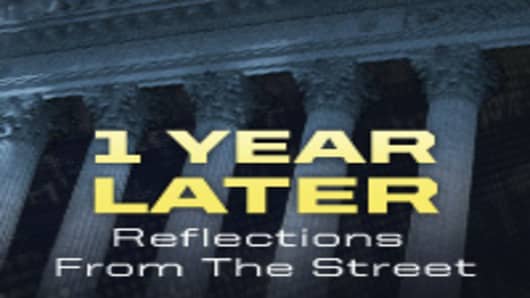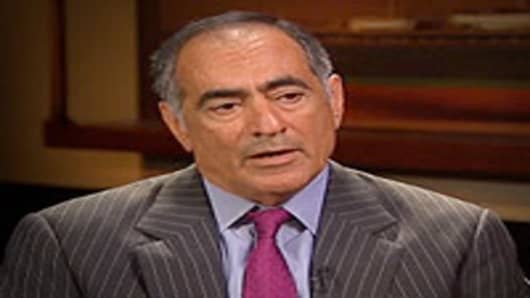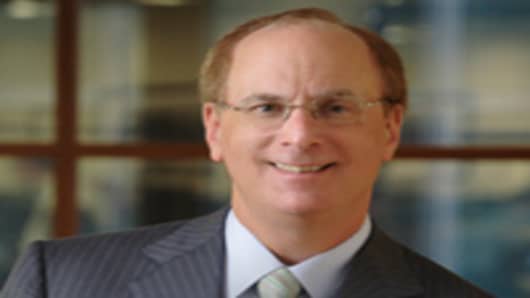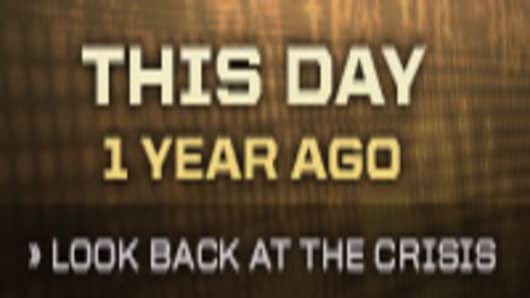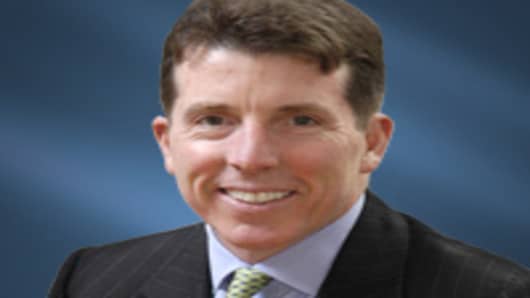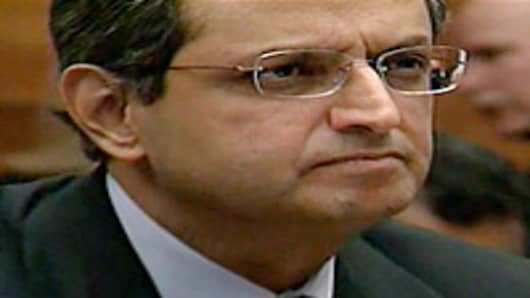In a rare and candid interview with Maria Bartiromo, Citi’sCEO Vikram Pandit reflected on the year since Lehman's collapse.
Going back to the weekends in September and October when Washington and Wall Street were trying to save the financial system from collapse, Pandit told Bartiromo why Lehman was so crucial to the Street. "There were a number of us there who knew that this wasn't only a question about one company, one firm. This wasn't only about inter-company contracts and whether we'll make money or somebody else makes money, but that if something did happen to Lehman it could undermine confidence in the entire financial system, which could drive away investors who were invested in the financial system - bonds and financial capital."
Pandit joined Citi back in April 2007 and his rise was somewhat meteoric. By mid October, he was running Citi's investment bank and 30 days later, Chuck Prince's shocking resignation put Pandit on top.
But it has been a rough ride for Citi, Pandit and the stock. Citi's bet on subprime mortgages went wrong, the bank perhaps grew too big, too fast and it's deal to buy regional bank Wachovia was trumpedby Wells Fargo . The banking giant fell to its knees and almost went under, until it received the largest federal bailout of any bank last year - a total of $50 billion.
For now, Pandit isn't putting a timeline on when Citi will return TARP funds. But he said "that's something we have to work out with the regulators and Treasury." Since the Fed's stress test earlier this year, Citi has continued to raise capital. Pandit told Bartiromo that over the past 18 months, Citi has raised $85 billion in capital privately and that "we're looking forward to seeing what the regulators say about what the right long-term capital structure ought to be and we'll let that guide us."
For Pandit and Citi, the good news is that there is now a lot more liquidity in the markets. He said "over the last year, there were lots of liquidity and funding issues that had gotten to a point where they needed government and federal help. Now we've addressed a lot of those things." But there are still some bumps in Citi's path to profitability, especially in the credit card and mortgage markets. Pandit said that "when we see those assets turn, I think you'll start seeing a change in the profitability picture of Citi."
While the road ahead may still be challenging, Pandit is confident that Citi has a clear strategy about its future. For him, it's about the right strategy, having the financial strength to weather any storm, and the culture to execute on any plan.
We will have more of Maria Bartiromo's one-on-one interviews with John Mack – Chairman & CEO of Morgan Stanley, Larry Fink – Chairman & CEO of BlackRock, Robert Diamond – President of Barclays and Vikram Pandit – CEO of Citi throughout the week. Be sure to check our blog for daily updates.
If you missed our special “One Year Later: Reflections From The Street”, CNBC will re-air this must see presentation on Wednesday, September 16th at 9.00PM ET. We take an in-depth look at what happened during Lehman’s collapse and what Wall Street looks like today.
_____________________________
_____________________________
Questions? Comments? Write to investoragenda@cnbc.com


